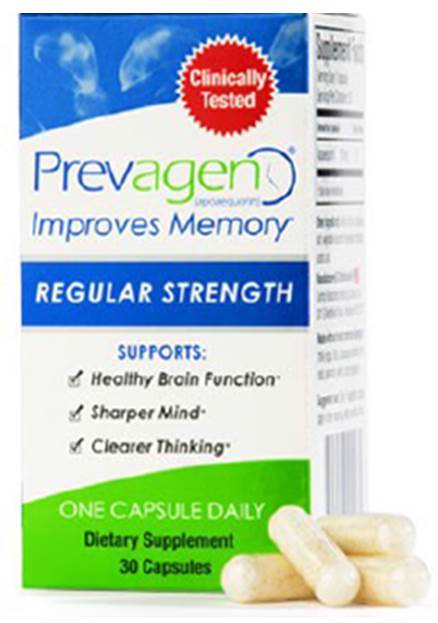Ads for Prevagen claimed that the purported memory improvement supplement is “The Name to Remember,” but according to a lawsuit filed by the FTC and the New York Attorney General, it’s a product consumers might be better off forgetting.
 Ever “walk into a room and forget why,” “spend extra time looking for car keys or purse,” or have “trouble remembering names or faces”? The defendants pitched Prevagen, a supplement containing a protein found in jellyfish, as an answer. A month’s supply set consumers back between $24 and $68, depending on the formulation, and was available online and at retailers like Amazon, CVS, Duane Reade, Rite-Aid, Meijer, the Vitamin Shoppe, and Walgreens. The defendants also ran an infomercial called The Better Memory Show and had company representatives board the “Prevagen Express” bus to visit health food centers and health expos across the country.
Ever “walk into a room and forget why,” “spend extra time looking for car keys or purse,” or have “trouble remembering names or faces”? The defendants pitched Prevagen, a supplement containing a protein found in jellyfish, as an answer. A month’s supply set consumers back between $24 and $68, depending on the formulation, and was available online and at retailers like Amazon, CVS, Duane Reade, Rite-Aid, Meijer, the Vitamin Shoppe, and Walgreens. The defendants also ran an infomercial called The Better Memory Show and had company representatives board the “Prevagen Express” bus to visit health food centers and health expos across the country.
Sales for Prevagen topped $165 million. (Yes, you read that right.)
According to the complaint, the defendants represented in national TV ads and elsewhere that Prevagen improves memory within 90 days, reduces memory problems associated with aging, and provides other cognitive benefits, like healthy brain function, a sharper mind, and clearer thinking. What’s more, they claimed to have clinical proof to support their advertising promises.
How was apoaequorin – that jellyfish protein – supposed to help people struggling with cognitive decline? The ads claimed that it enters the brain to supplement proteins lost during the aging process. But according to the FTC and New York AG, the defendants don’t have studies showing that apoaequorin taken orally ever reaches the brain: “To the contrary, Defendants’ safety studies show that apoaequorin is rapidly digested in the stomach and broken down into amino acids and small peptides like any other dietary protein.”
 The FTC and AG also allege that the defendants made false statements about their purported clinical evidence. You’ll want to read the complaint for details, but here’s just one example. The company relied primarily on a double-blind, placebo-controlled human study assessing subjects on nine cognitive tasks designed to assess skills like memory and learning. But according to the FTC and New York AG, the group that took Prevagen failed to show a statistically significant improvement in any of the nine tasks when compared with people who were given a placebo.
The FTC and AG also allege that the defendants made false statements about their purported clinical evidence. You’ll want to read the complaint for details, but here’s just one example. The company relied primarily on a double-blind, placebo-controlled human study assessing subjects on nine cognitive tasks designed to assess skills like memory and learning. But according to the FTC and New York AG, the group that took Prevagen failed to show a statistically significant improvement in any of the nine tasks when compared with people who were given a placebo.
Filed in federal court in New York, the lawsuit names Prevagen, Inc., Quincy Bioscience Holding Company, Inc., Quincy Bioscience, LLC, Quincy Bioscience Manufacturing, LLC, CEO Michael Beaman, and President Mark Underwood. (Mr. Underwood was a lead researcher in the company-conducted clinical study, appeared in Prevagen ads, and wrote a booklet, The Brain Health Guide, that purports to explain the science behind the claims.) The complaint alleges violations of the FTC Act and two New York state consumer protection laws.
